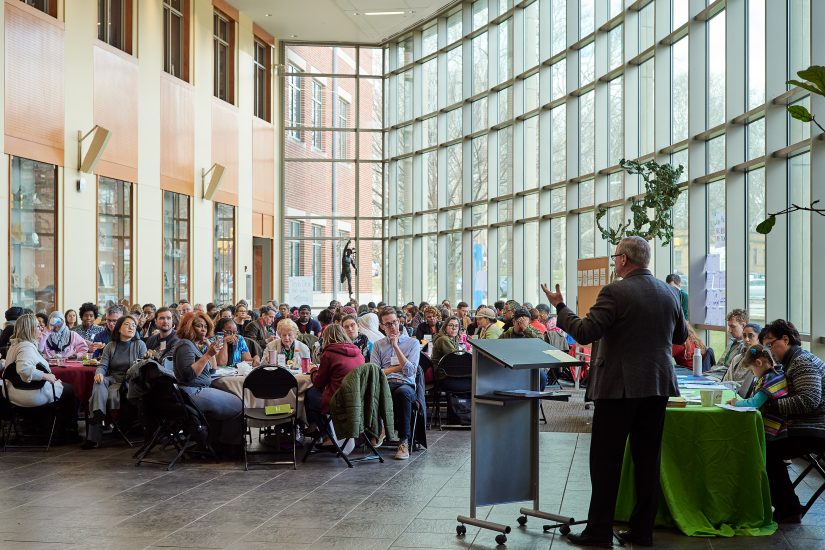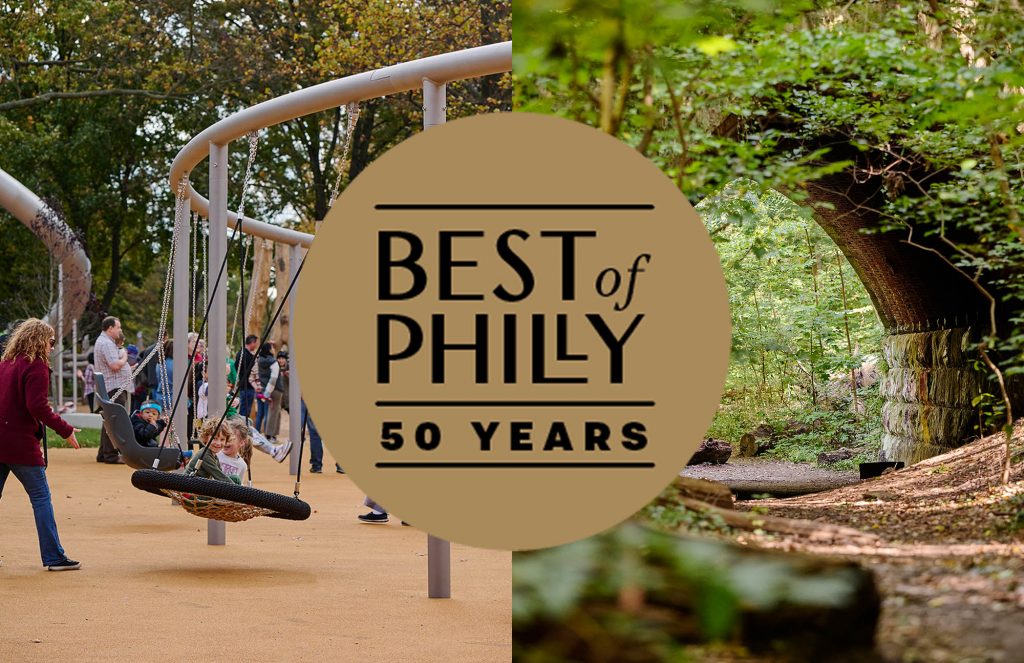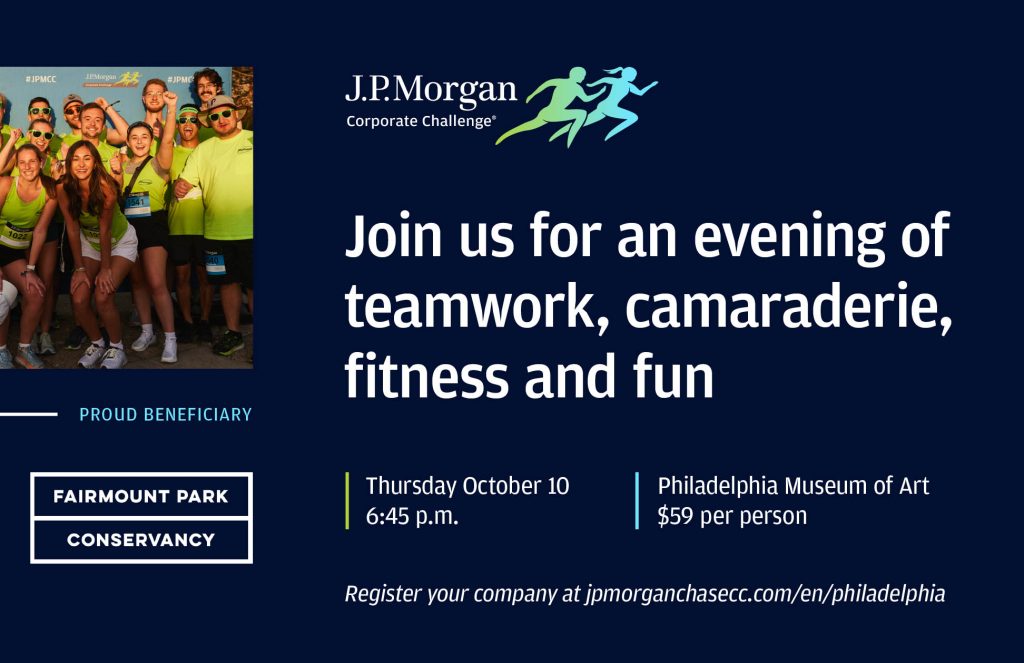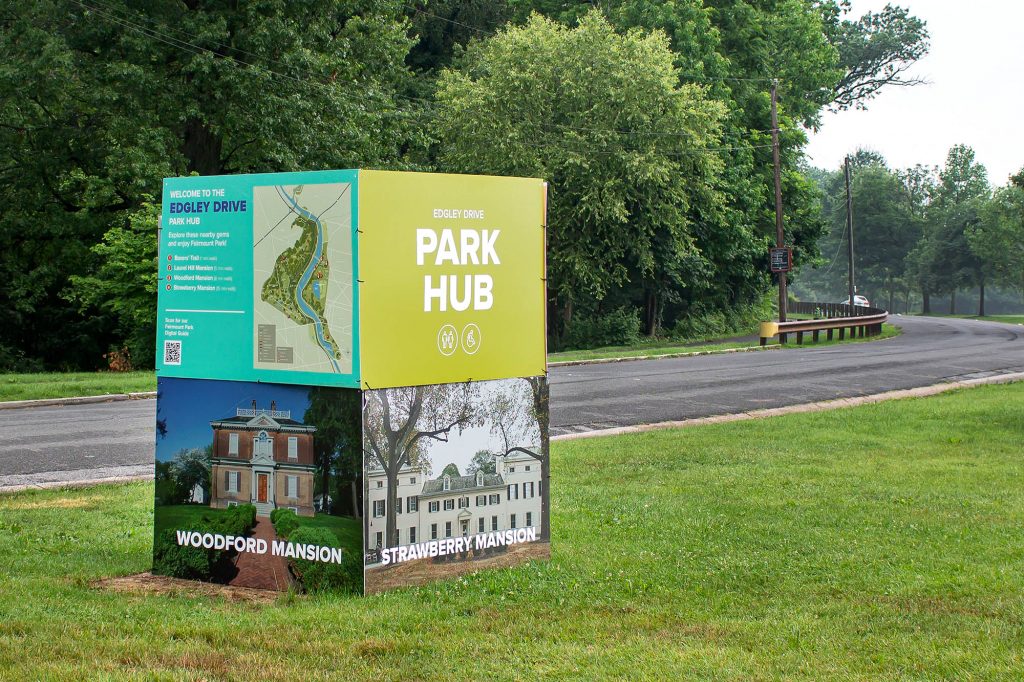On Saturday, February 8, 200 public space champions came together for a day of learning and collaboration at the Philadelphia Public Space Summit.
It was only the second time that Park and Library Friends groups and Recreation Advisory Councils from across Philadelphia gathered for a day of inspirational, practical, and educational workshops and sessions at the University of the Sciences in West Philly. These volunteer-based groups steward Philadelphia’s public spaces year-round.
The day of learning kicked off with a welcome from Patrick Morgan of Philadelphia Parks & Recreation, Linda Colwell-Smith of the Friends of the Free Library, Ellen Hwang of the Knight Foundation, and Maura McCarthy, Executive Director of Fairmount Park Conservancy. “We hope that this year’s Public Space Summit will help reinforce the learnings we’ve already picked up along the way, as well as offer new learnings as we work with each other today,” McCarthy said.
After a day of learning sessions on topics ranging from inclusive approach and design to youth engagement practices, the public space advocates shared lunch with their neighbors and workshopped how they could work together and apply for the next round of Neighborhood Collaboration Grants.
Mayor Jim Kenney and Philadelphia Parks & Recreation Commissioner Kathryn Ott Lovell joined at lunchtime to close out the Public Space Summit and thank the stewards for their support of public spaces.
“There’s great power in public space to bring us together,” said Commissioner Ott Lovell. “And we need it now more than ever.”
Here are a few lessons learned from the second annual Public Space Summit.
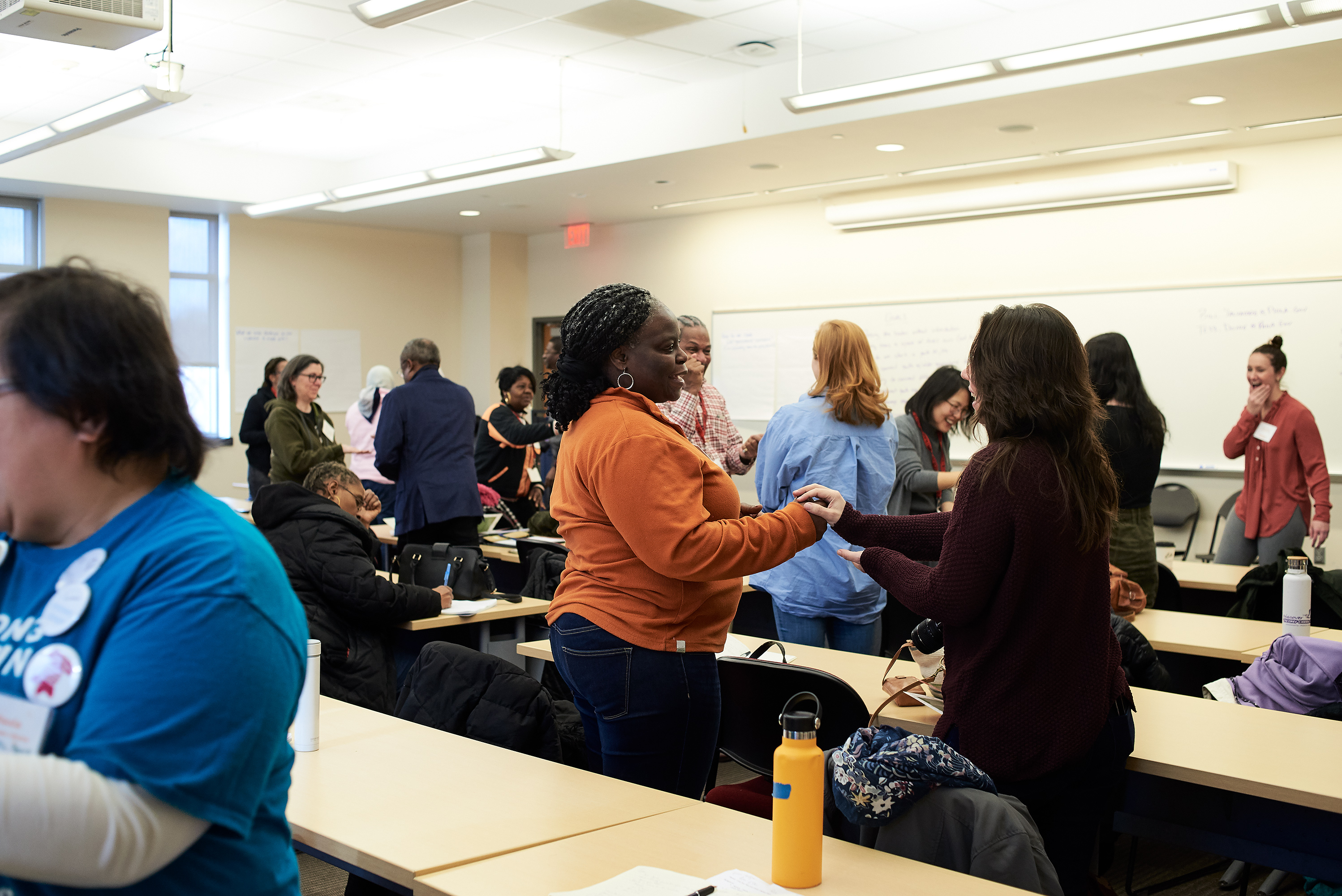
1. Elevate youth into places of power
At the Youth Engagement Practices session, teenage members of Youth Advisory Councils at libraries and rec centers took the lead, guiding group discussions on how to effectively engage youth in meaningful ways. One common piece of advice was to give youth the opportunity to have a seat at the table and give them an active voice. If possible, offering an incentive, such as a stipend for their work could encourage them to take on an active role in their public space.
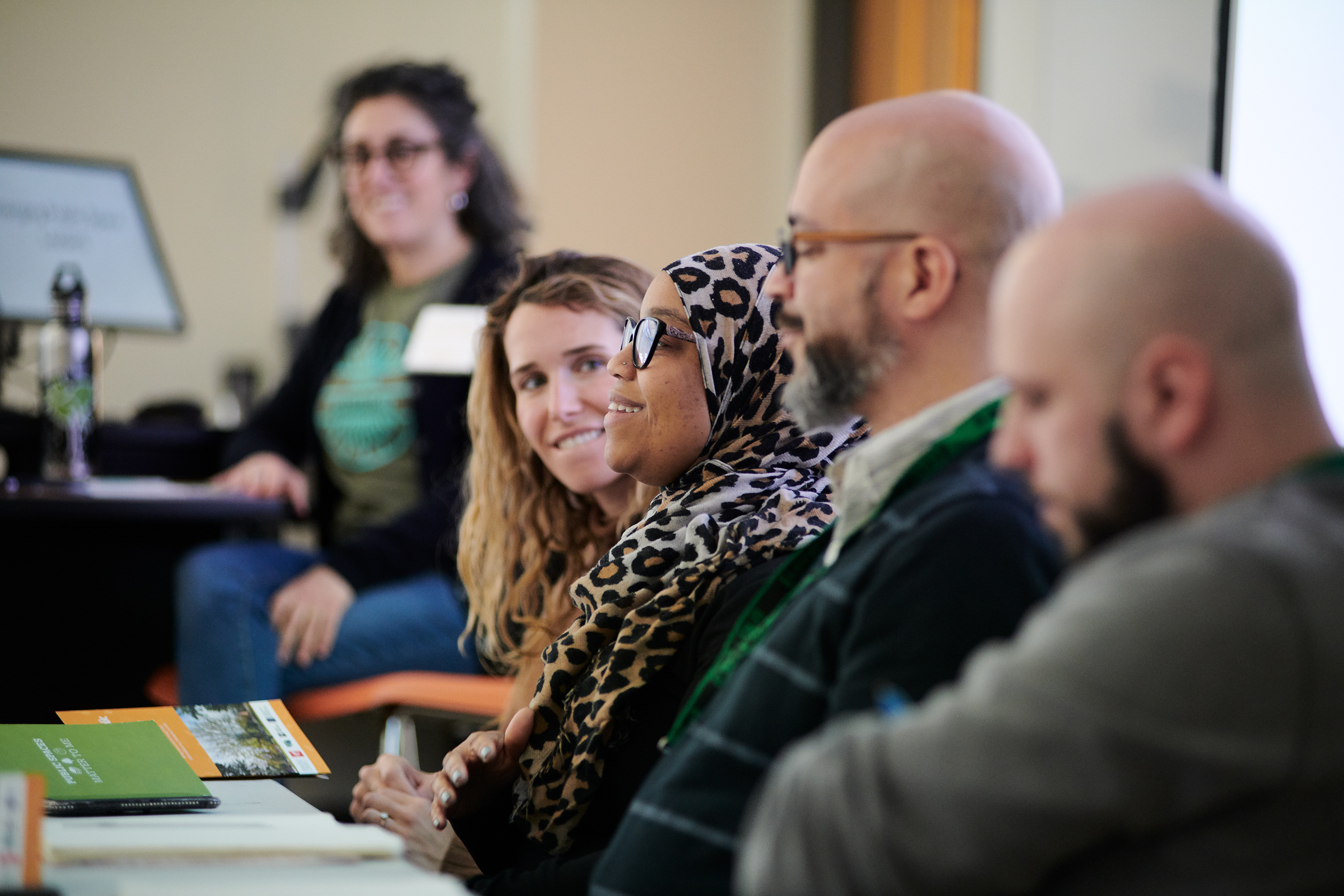
2. Find new leaders in people who already have a connection to a public space.
One issue that often arises for public space stewards is recruiting and retaining new members. In the Emerging Public Spaces Leaders session, a common thread for the panel’s participants was that they were already active users of their park, library, or rec center long before joining their respective groups. The secretary of Friends of FDR Park became involved because she loved the park and felt that she could help make an impact. The president of the Vare Recreation Center Advisory Council was already an active parent and longtime user of the Rec Center. Reaching out directly to those who already have a personal connection to the space is a good start, since they are already invested in the park, library, or rec center.
“Who do you trust?” Do you ask this question when you embark on a planning process or do something in your community? Ash Richards @PhilaParkandRec found this to be the most compelling question to begin the planning process for the Coty’s first urban ag plan. #publicspacesummit pic.twitter.com/AU4By8Jtzj
— Ellen (Hwang) Kwon (@ellen_hwang_phl) February 8, 2020
3. Don’t underestimate the power of social media
The Literacy Carnival in Mifflin Square was hosted in May 2019 by Mifflin Square, Friends of Whitman Library, Friends of Fumo Library, and SEAMACC as one of the recipients of the Neighborhood Collaboration Grants. Part of the event’s success was due to each partner spreading the word through their individual networks. They also had flyers with all of the group’s contact information at the actual event to encourage folks to keep in touch and stay up to date about future events.
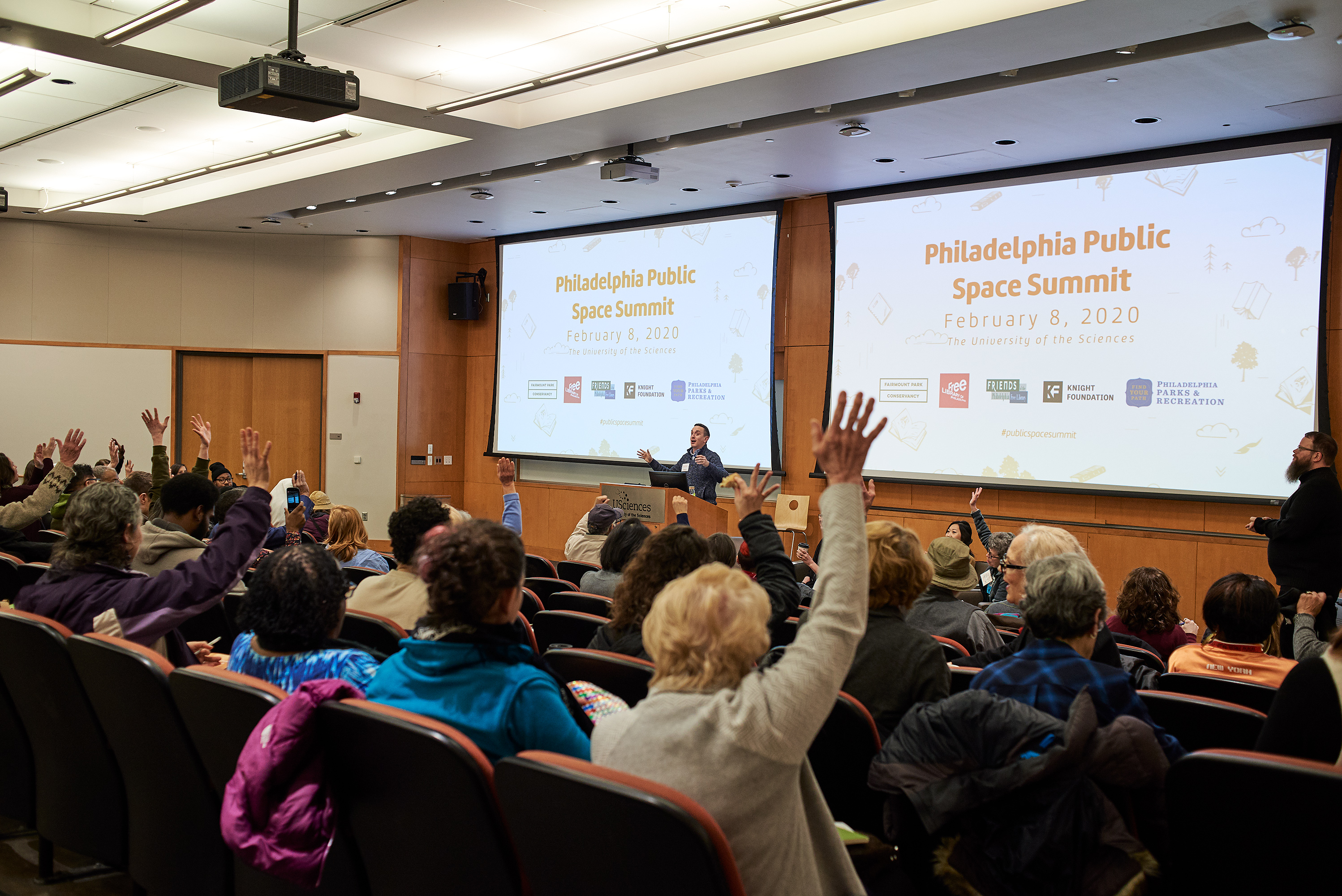
4. Consider inclusive approach and design for your public space.
One in four Americans has a disability, and the disability rate in Philadelphia is highest among the largest U.S. cities. At the Inclusive Approach and Design workshop led by the Mayor’s Commission on People with Disabilities and Art-Reach, participants learned about etiquette for serving people with disabilities, inclusive language, and examples of programmatic modifications to ensure that their next event or activity is as accessible and inclusive as possible. For example, one participant came away with the idea to improve the presentation of the trail map for the visually impaired. Another participant said, “We were inspired not to assume ‘ability’ with our neighbors and to take a more universally designed approach to programming.”
Click on the links below to view presentations from the Public Space Summit:
Urban Agriculture and Forestry: Planning for the Future
Creative Fundraising Strategies
Climate Change Curriculum for All
To learn more about the Park Stewardship program and how to get involved with your Park Friends Group, please click here.
The Public Space Summit was coordinated in partnership with Fairmount Park Conservancy, City of Philadelphia – Philadelphia Parks & Recreation, and the Free Library, Friends of the Free Library and made possible by the Knight Foundation.
